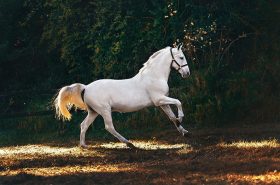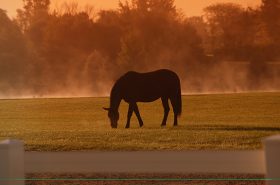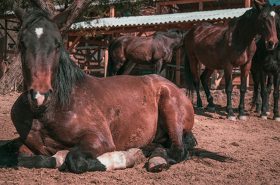Stereotypical behaviors are repetitive, abnormal behaviors that can develop in horses kept stalled for much of the day. In fact, researchers believe that between 10-40% of stabled horses will develop a stereotypic behavior of some kind. However, these behaviors are rarely seen in wild or free-ranging horses.
Below are a few of the most common stereotypic behaviors seen in horses.
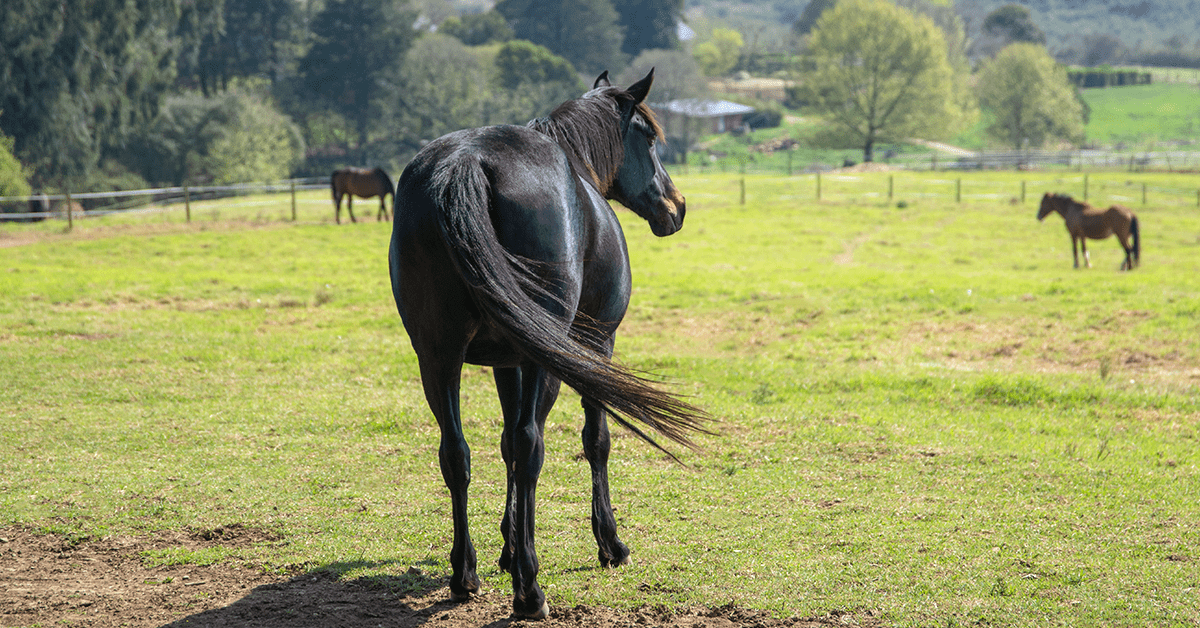
5 Stereotypical Behaviors in Horses
- Wood Chewing – Wood chewing is exactly what it sounds like—when a horse bites off pieces of wood and ingests them. Wood chewing can happen in stalls or with wood fences.
- Cribbing – Cribbing is where a horse will grasp a horizontal surface such as a stall door or bucket with its incisor teeth, flex its neck, and suck in air. Wood chewing may be mistaken for cribbing, but the two behaviors are different. Wood chewing may turn into cribbing for some horses, however. Both cribbing and wood chewing are often the results of a lack of long-stem forage in the diet.
- Weaving – Weaving involves moving the head from side to side while alternating weight between the forelegs in a repetitive manner. This is usually seen as the horse stands with its head over the stall door.
- Stall Walking – Stall walking is where a horse will walk in circles around their stall, often for hours at a time. If kept in a larger area, the horse may circle in one corner.
- Pawing – Pawing is when a horse raises one leg, striking their hoof at a stall wall, door, or the ground and then drags the foot back toward their body. This is a normal behavior in some circumstances, but it becomes stereotypic when it becomes excessive.
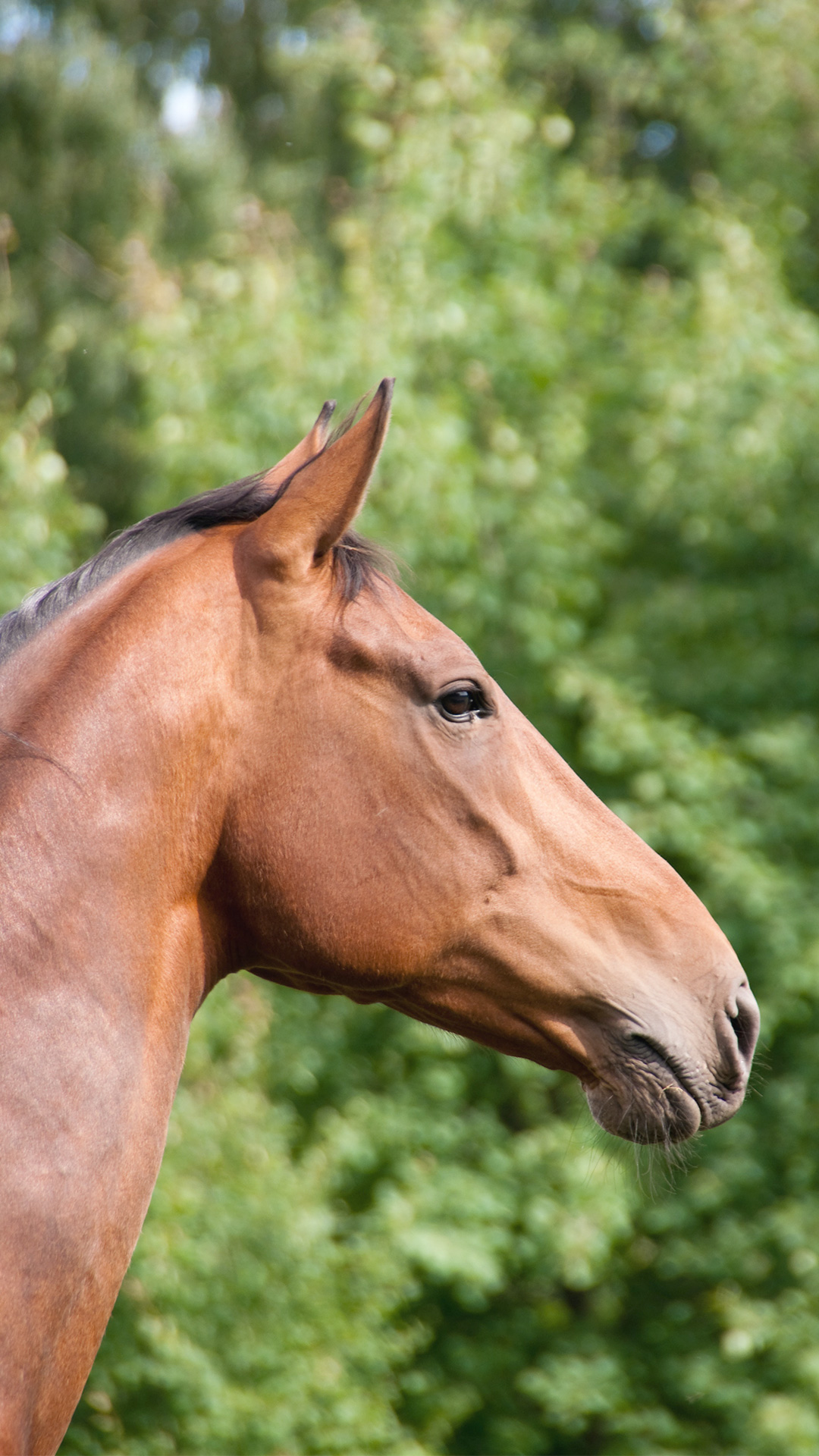
Why Do Horses Develop Stereotypic Behavior?
Stereotypic behavior is usually caused by the horse’s diet and management. Horses have an innate need to move, socialize, and graze throughout the day (and night). By restricting these natural behaviors, we are often inviting unnatural behaviors to take their place.
Stereotypic behaviors can be difficult to break once they’ve developed. However, they can be prevented by managing your horse in a more natural way. Ample turnout with other horses, plenty of long-stem forage, and regular exercise are all important in preventing/curbing stereotypic behavior.
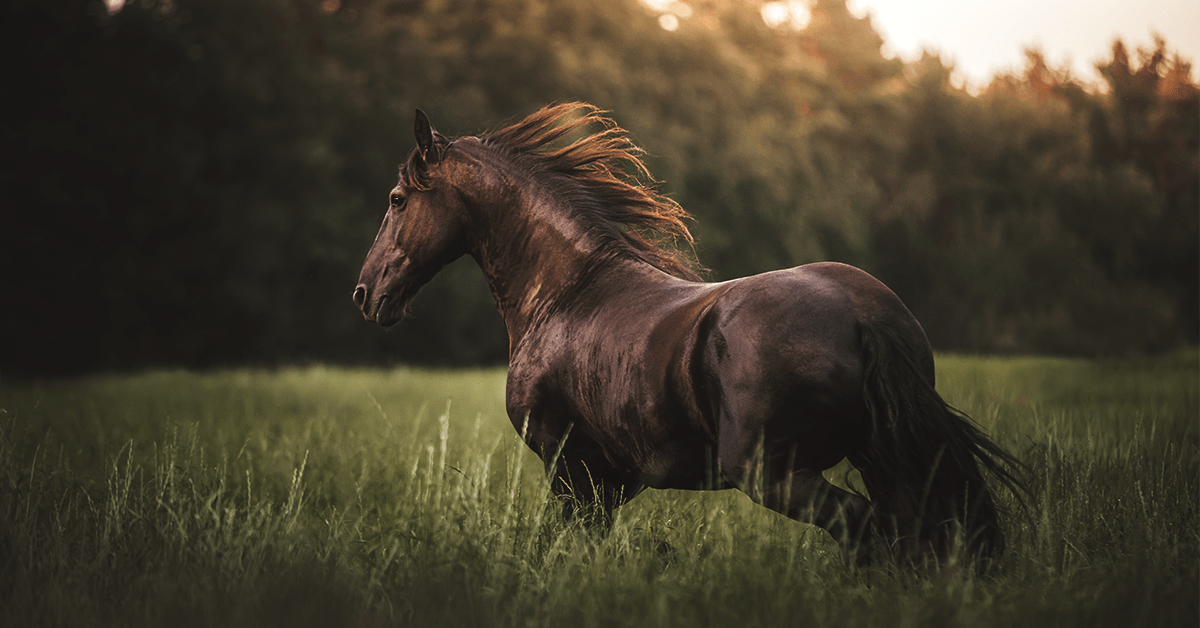
Did you enjoy this blog post? We think you may like Why Do Horses Chew Wood? by Emily Fought.

